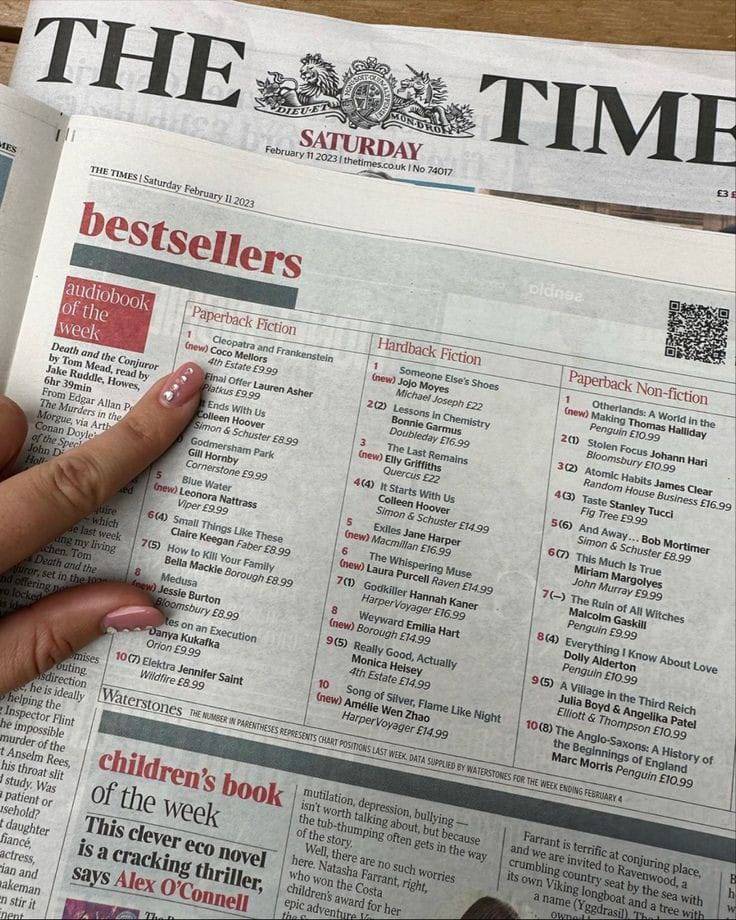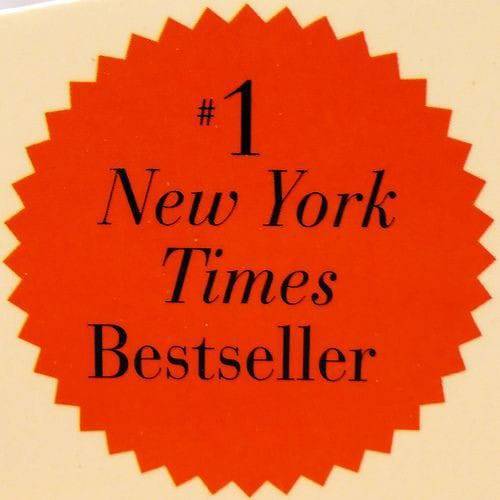Ah, the bestseller list! That ranking where dreams are made, and pretentious book clubs derive their seasonal reading lists. But the million-dollar question is: Are these lists accurate indicators of quality? Or are they just a mishmash of marketing strategies, social media hype, and maybe a sprinkle of actual talent?
Let’s start with the magic behind these lists. Imagine a grand wizard with a beard as long as a CVS receipt, waving his wand and deciding which books make it to the coveted list. In reality, it’s a tad less glamorous. Bestseller lists are compiled using various data points, including sales figures, pre-orders, and even an author’s social media following. It’s like the Hogwarts Sorting Hat, but with more algorithms and fewer singing hats.
The New York Times, for instance, uses a mix of sales data from independent and chain bookstores, along with online retailers. It’s like a secret recipe for literary soup, and only a few know all the ingredients. But here’s the catch – the ingredients can be a bit quirky. For instance, a book might skyrocket to the top because a celebrity endorsed it, or perhaps it hit the sweet spot of a viral TikTok trend. Remember when a book about the economic policies of 18th-century France became a bestseller because a YouTuber called it a “must-read for understanding modern memes”? Neither do I, but stranger things have happened.
Every single list is either measuring a limited number of sales in a few places, or far worse, it’s a curated list and a small group of people are deciding what to put on their list. And they’re picking books based on what they think are “important” books, not based on what is actually selling. This is not my opinion. They all admit this.
The most important bestseller list is The New York Times Best Seller List, and they are the worst culprit at this curated elitism. They readily admit that their list is only “reflective” of books that are selling at a certain number of bookstores and online retailers around the country—but not an actual best seller list.
You know why they have to admit this publicly? They were sued about it. For most of the 20th century, they pretended to use a scientific method to count book sales, and claimed their list was authoritative and accurate. And then William Blatty wrote a novel called ‘The Exorcist’ (which has sold 10 million copies and became a famous movie). It sold more than enough copies to be high on the list for a long time, but initially did not appear on it. He rightly claimed that the New York Times was intentionally excluding it for editorial reasons—the book was considered very controversial at the time—and claimed that their decision was costing him millions of dollars in sales.
He lost the case. Why? Because the New York Times’ defense was that “the list did not purport to be an objective compilation of information but instead was an editorial product.”
The New York Times won the case, in multiple rulings all the way up to the Supreme Court, based on the argument that the list is not supposed to be accurate, but reflects their judgment. It is a valid legal argument, but it also means The New York Times admitted that their bestseller list is just a popularity contest, and not a list of best-selling books.
Marketing departments deserve a standing ovation for their role in the bestseller phenomenon. These folks can make a book about the mating habits of garden gnomes sound like the next Pulitzer Prize winner. They create elaborate campaigns, from eye-catching book covers to strategic release dates. And don’t forget those blurbs on the cover – “A heart-wrenching tale that will make you laugh, cry, and reconsider your life choices.” Sure, why not?
Let’s not overlook the celebrity effect. If Oprah, Reese Witherspoon, or any famous personality recommends a book, it’s practically guaranteed a spot on the bestseller list. It doesn’t matter if the book is about how to knit sweaters for your cat, it’s going to sell. Celebrities have the Midas touch when it comes to book sales, proving that quality often plays second fiddle to star power.
Here’s where things get a bit dicey. Literary quality and popularity aren’t always best friends. In fact, they sometimes attend different high schools and have very different friend groups.
Consider this: A book that’s titled as a masterpiece by critics may never make it to the bestseller list. Why? Because the general populace might find it as engaging as a textbook on quantum mechanics. Meanwhile, a book that critics scoff at – say, a steamy romance involving a billionaire vampire and a love-struck barista – might sell like hotcakes. It’s like watching an Oscar-winning film about existential angst lost out to a blockbuster superhero movie. Both have their merits, but they appeal to different audiences.
We all have those guilty pleasure reads – books that we know aren’t exactly Shakespearean but are darn entertaining. These are the books that dominate bestseller lists. They’re like the bookish equivalent of junk food: not exactly nutritious, but oh-so-satisfying. And that’s perfectly fine. Reading is, after all, a form of entertainment. Who are we to judge if someone finds solace in a trashy romance novel or a thriller with more plot holes than cheese?
Trends play a huge role in what makes it to the bestseller list. Remember when dystopian novels were all the rage? Or the vampire craze? These trends can make or break a book’s success. It’s a bit like fashion – one day, you’re in, the next day, you’re out. And just like fashion, trends can be fleeting.
Let’s talk about BookTok for a moment. This corner of TikTok has become a powerful force in the book world. A single recommendation from a popular BookToker can place a book to the top of the bestseller list. It’s like having a fairy godmother, but instead of turning pumpkins into carriages, she turns under-the-radar books into overnight sensations. This has democratized book recommendations but also added a layer of unpredictability to the bestseller equation.
In a nutshell, a book must sell at least 5,000 copies in a single week through “diverse” means. That means if Amazon sells 5,000 copies or B&N sells 5,000 copies, that book won’t make the list, but if Amazon, B&N and other retailers across the country sell 5,000 copies combined, it makes the list. More combined sales, higher on the list. ANY book that does this, even for a single week, can say it’s a NYT best seller. Which is why so many books have that qualifier. And there’s a self-fulfilling prophecy aspect in play, too, since many people think that a NYT best seller is somehow an endorsement BY the NYT.
When everything’s a bestseller, nothing’s a bestseller. If every book can claim the title after a single week of moderate success, the term “bestseller” loses its significance. It’s like giving every kid a participation trophy – sure, it feels good, but it doesn’t mean they all scored the winning goal. The sheer number of books touting the “bestseller” label dilutes its impact and leaves readers questioning what it truly represents.
From an author’s point of view, making it to the bestseller list is like winning the lottery. It’s validation, recognition, and a ticket to increased sales. But does it mean their book is of high quality? Not necessarily. It means their book resonated with a large audience, which is a feat in itself. Literary quality is subjective, after all. One person’s “masterpiece” is another person’s “meh.”
There’s also the pressure that comes with chasing the bestseller dream. Authors may feel compelled to cater to popular trends or write what’s marketable rather than what’s in their hearts. It’s a delicate balancing act between artistic integrity and commercial success.
As readers, we often look to bestseller lists for guidance. It’s like having a friend who’s really good at picking out books for us. But just like friends, these lists can sometimes lead us astray. How many times have you picked up a bestseller only to find it wasn’t your cup of tea? It’s happened to the best of us, while bestseller lists can be a useful tool, they’re not the be-all and end-all of bookish quality.
So, are bestseller lists accurate indicators of literary quality? Not exactly. They’re more like a reflection of what’s popular at a given moment, influenced by marketing, trends, and a dash of celebrity magic. In the end, literary quality is subjective. What matters most is finding books that resonate with us, whether they’re bestsellers or hidden gems. So go on, explore, and let your journey be guided not just by bestseller lists, but by your own tastes and curiosities. After all, the joy of reading lies in the adventure, not the book on the banner..




